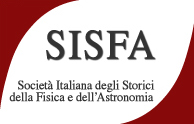Speaker
Description
During the summer of 1962, the new observatory of Tartu – today in Estonia, back then part of the USSR – was under construction, to be inaugurated the following year. Given its importance in the subsequent decades, as well as its (by now) bicentenary historical tradition, this alone would be a fact worth historical investigation. In July of that year, a sort of summer school (other sources call it a ‘theoretical workshop’) was organized, to which a number of distinguished Soviet physicists – not just astronomers or astrophysicists – took part. Curiously enough, this has not received historical attention per se. In the present paper, we stress and comment the contributions to that event given by Ya.B. Zel'dovich and B.M. Pontecorvo. The former, right then, was embarking on a phase of his career in which he was going to direct an impactful group of general relativists and astrophysicists, and it is therefore highly meaningful to consider the survey of questions and problems he presented to that audience. The latter illustrated instead some astrophysical implications of neutrinos: how fruitful such a perspective was soon going to prove is, by now, common knowledge. We intend in this way to offer a proper contextualization of those contributions, respectively at the dawn of relativistic astrophysics and neutrino astrophysics, thus calling the historians’ attention not just on a noteworthy institution and its renewal, but also on the remarkable ideas that flowed together during that occasion.

